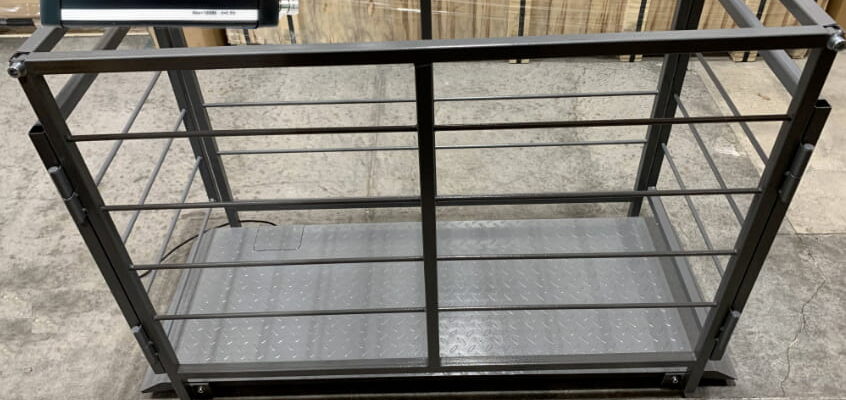When it comes to managing small livestock, accurate weighing is crucial for monitoring their health and ensuring optimal care. The right scale can make a significant difference in managing weight, tracking growth, and even evaluating overall well-being. In this guide, we’ll explore the key considerations for small livestock scales to help you make an informed choice.
Why Accurate Weighing Matters
Accurate weighing is more than just a routine task; it’s essential for effective livestock management. For small livestock, such as goats, sheep, and pigs, keeping track of their weight helps you monitor their growth, manage their feed, and detect any health issues early on. Without precise measurements, you risk missing important changes in your animals’ health and development.
Key Features to Look For
Capacity and Range
One of the first factors to consider is the scale’s capacity and range. Small livestock scales should be capable of handling the specific weight range of your animals.
A scale with too low a capacity might not be able to accommodate larger animals, while one with too high a range might not be as accurate for smaller weights. Ensuring that the scale fits the weight needs of your livestock is critical for accurate readings and effective management.
Durability and Build Quality
Scales for small livestock need to withstand regular use in various conditions. Look for models made from durable materials like stainless steel or heavy-duty plastics.
These materials ensure that the scale remains operational despite exposure to the elements, frequent use, and potential impacts. A well-built scale will not only last longer but also provide consistent performance over time.
Ease of Use and Readability
A scale should be user-friendly and easy to operate. Features like a clear, digital display can make reading measurements straightforward. Additionally, intuitive controls and simple calibration processes reduce the time needed to train users and ensure that you get accurate results quickly. The easier it is to use the scale, the more efficiently you can manage your livestock.
Types of Scales Suitable for Small Livestock
Portable Scales
Portable scales are an excellent choice if you need flexibility and mobility. These scales are ideal for farmers who need to weigh animals in different locations, whether in the barn, pasture or during transport.
They are usually compact and can be easily moved, making them a practical solution for on-the-go weighing. Portable scales often come with features like built-in handles and lightweight designs to enhance their convenience.
Fixed or Platform Scales
For those who require a more permanent setup, fixed or platform scales are a solid choice. These scales are designed for stable, stationary use and typically offer higher capacity and durability.
They are often used in environments where regular weighing is needed, such as in a barn or livestock management facility. Fixed scales provide a reliable and consistent weighing solution and are often equipped with features designed for frequent use.
Additional Considerations
Calibration and Accuracy
Regular calibration is crucial for maintaining the accuracy of any scale. Over time, scales can drift from their calibrated settings, leading to inaccurate measurements. Choose a scale that allows for easy calibration and check its accuracy regularly to ensure it continues to provide precise readings. Many scales come with built-in calibration features or instructions to help you maintain accuracy.
Budget and Value
When selecting a scale, balancing your budget with the features you need is essential. While it may be tempting to opt for the cheapest option, investing in a scale that meets your specific requirements and offers good durability and accuracy can save you money in the long run. Consider the total value of the scale, including its lifespan and performance, to make a well-rounded decision.
Conclusion
Choosing the right mall livestock scale involves evaluating several factors, including capacity, durability, ease of use, and the specific needs of your animals. By considering these key points, you can select a scale that enhances your livestock management and ensures accurate, reliable measurements.
For those looking to delve deeper into the selection process or seek expert advice, exploring additional resources and consulting with professionals can provide further guidance and support.

